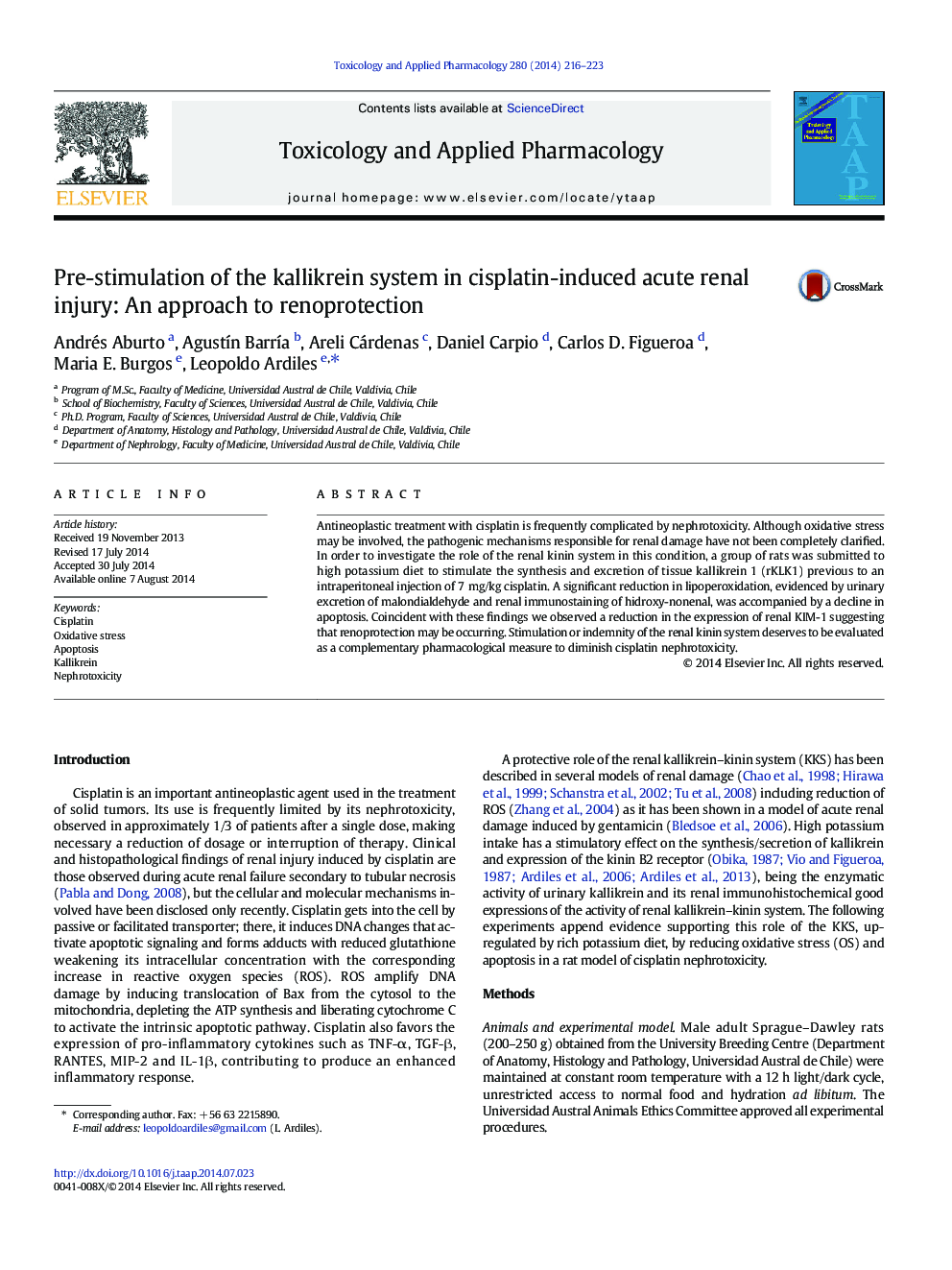| Article ID | Journal | Published Year | Pages | File Type |
|---|---|---|---|---|
| 5846219 | Toxicology and Applied Pharmacology | 2014 | 8 Pages |
â¢Mechanisms of cisplatin-induced-renal damage have not been completely clarified.â¢Cisplatin induces oxidative stress and apoptosis.â¢The renal kallikrein-kinin system is protective in experimental acute renal damage.â¢Kallikrein stimulation reduces oxidative stress and apoptosis induced by cisplatin.â¢Protection of the kallikrein-kinin system may reduce cisplatin toxicity.
Antineoplastic treatment with cisplatin is frequently complicated by nephrotoxicity. Although oxidative stress may be involved, the pathogenic mechanisms responsible for renal damage have not been completely clarified. In order to investigate the role of the renal kinin system in this condition, a group of rats was submitted to high potassium diet to stimulate the synthesis and excretion of tissue kallikrein 1 (rKLK1) previous to an intraperitoneal injection of 7Â mg/kg cisplatin. A significant reduction in lipoperoxidation, evidenced by urinary excretion of malondialdehyde and renal immunostaining of hidroxy-nonenal, was accompanied by a decline in apoptosis. Coincident with these findings we observed a reduction in the expression of renal KIM-1 suggesting that renoprotection may be occurring. Stimulation or indemnity of the renal kinin system deserves to be evaluated as a complementary pharmacological measure to diminish cisplatin nephrotoxicity.
Graphical abstractDownload high-res image (92KB)Download full-size image
